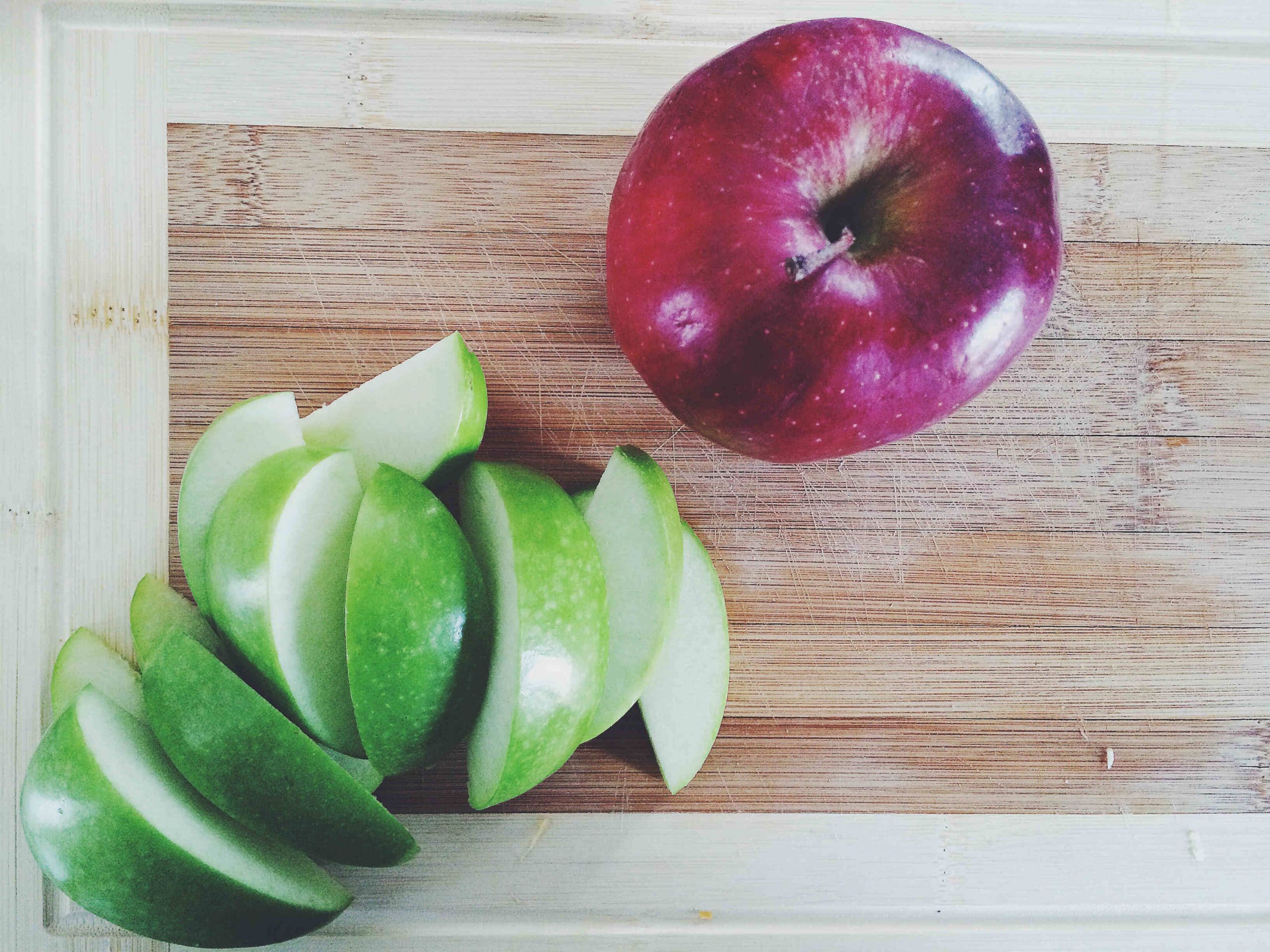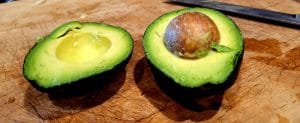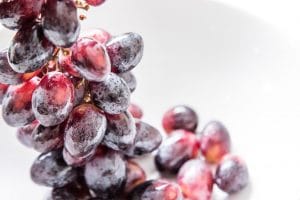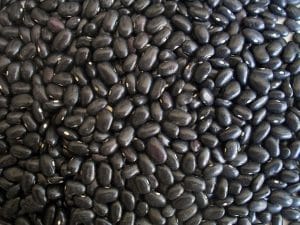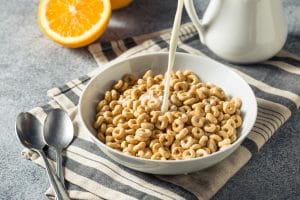Are Apples Low FODMAP?
Important Note: When you buy through our links, we may earn a commission. As an Amazon Associate we earn from qualifying purchases. Content, pricing, offers and availability are subject to change at any time - more info.
An apple a day keeps the doctor away. This is the kind of saying that often enters our lives during our early childhood and remains with us throughout our lives. Yet, the true value of this golden nugget of dietary advice often passes us by. So, let’s explore the depth of wisdom the saying has to offer. What we want to know is whether this well-known quote is accurate and applicable for low FODMAP diets and those suffering from digestive issues like irritable bowel syndrome (IBS)? Let’s find out.
Apples classify as high FODMAP fruit. They contain high levels of fructose and polyol-sorbitol, both of which are high FODMAPs. However, limited amounts (0,705 oz) of Granny Smiths, Red Delicious, and Red Chief apples contain less fructose and are low enough in FODMAPs to try in a low FODMAP diet.
All fruit contains FODMAP fructose, but interesting enough, not all fruits are high in FODMAPs. Continue reading to find out why apples are not considered low FODMAPs.
- Are Apples Low FODMAP?
- Suggestions For Eating Apples On A Low FODMAP Diet
- Are Stewed Apples Low FODMAP?
- Can Adding Glucose Make Apples Low FODMAP
- Should Everyone Avoid Eating Apples?
- Possible – Even Though It Is Not As Easy As Apple Pie
Are Apples Low FODMAP?
Apples are not considered to be a low FODMAP. Instead, they are quite the opposite.
Unfortunately, apples contain copious amounts of fructose and polyol-sorbitol, the ‘M’ and ‘P’ in FODMAP, making them one of the top 10 high FODMAP fruits to avoid.
According to a study on the sugar composition of 17 different apple cultivars, the average sugar content was 0.229 oz fructose, 0.0515 oz glucose, and 0.168 oz sucrose.
While focusing on the ratio between fructose and glucose in apples, fructose has more than four times the amount of glucose.
If you aim to follow a low FODMAP diet or struggle with fructose malabsorption from digestive problems like IBS, you should typically aim to eat fruit that contains a 1:1 glucose-to-fructose ratio.
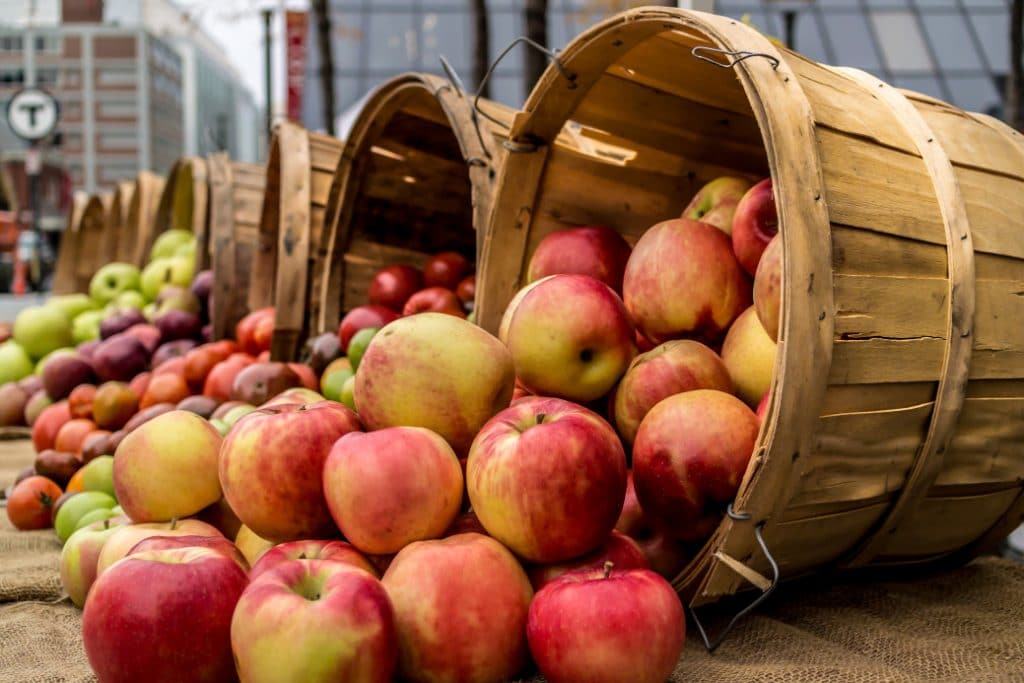
Here’s how it generally works.
One of the mechanisms that help fructose successfully absorb in the small intestine is an equal amount of glucose. Glucose acts as a carrier that will enable fructose to move out of the gut and into the bloodstream.
If equal parts of glucose aren’t present, the fructose becomes “stranded” in the gut causing the gut bacteria in the large intestine to ferment the fructose. Furthermore, the fermented fruit will cause adverse symptoms, including bloating, abdominal cramps, gas, and gut motility.
Fructose is also osmotic, meaning that the fructose causes additional water to flow into the gut. In turn, the excess water affects a person’s bowel movements and causes diarrhea.
In addition, apples naturally contain high amounts of polyol-sorbitol. When referring to Polyols, foods that contain 0,01 oz or more Sorbitol are considered high FODMAP.
Sorbitol is a carbohydrate called sugar alcohol (polyol). It is a water-soluble compound that naturally occurs in many fruits, including apples.
So, due to the high fructose and polyol-sorbitol present in apples, they aren’t suitable for low FODMAP diets. However, if you find it tempting to give apples a try, be sure to keep the apple variety and recommended portion sizes per serving in mind.
Suggestions For Eating Apples On A Low FODMAP Diet
The recommended serving for low FODMAP fruit generally depends on how much fructose and glucose the fruit contains. Fortunately, glucose is a non-FODMAP sugar that aids in fructose absorption.
So, as a rule, try eating apple varieties with lower amounts of fructose and higher glucose levels.
We found fascinating research that helped us significantly to select the best apple varieties to eat in moderation. According to the Athens Journal of Sciences, here are the top 3 apples that contain the least amount of fructose with the most glucose:
- Granny Smith
- Red Delicious
- Red Chief
Even though these three apple varieties contain less fructose, a whole apple is still above the low FODMAP range, so they need to be eaten in small amounts to prevent unwanted IBS of gastrointestinal disturbances.
As a general rule, stick to 0,705 oz portions sizes per serving to ensure you stay in the low FODMAP range.
Furthermore, we recommend avoiding eating most varieties of apples, especially during the low FODMAP elimination or restriction phase.
Are Stewed Apples Low FODMAP?
Stewed apples are particularly beneficial to improve overall gut health by releasing gut-healing pectin; this is a unique form of fiber that releases during stewing.
The gut-healing pectin has many advantages to maintaining and repairing the intestinal mucosa lining, treating inflammation, and removing toxins.
However, there is an unfortunate exception. Individuals on a low FODMAP diet due to IBS or other gastrointestinal issues can’t eat stewed apples.
Stewing the apples makes them exceptionally high in fructose, making them high FODMAP foods that cause bloating and digestive discomfort.

Can Adding Glucose Make Apples Low FODMAP
You may have heard that adding glucose to foods rich in fructose can make it low FODMAP. Although accurate and pretty effective, this is not the case with apples.
Unfortunately, apples also contain high levels of polyol-sorbitol, and adding additional glucose won’t affect the absorption of polyols. Even more, if a bacterial overgrowth is present in the gut, the overuse of these sugar alcohols will lead to gas, abdominal pain, and diarrhea.
Should Everyone Avoid Eating Apples?
Despite apples not being a low FODMAP fruit, not everyone should eliminate it from their diet.
Although low FODMAP diets generally provide remarkable benefits and outcomes for individuals suffering from a common digestive disorder like IBS, only a small subset of people need to avoid FODMAPs.
FODMAPs are generally healthy for most people without digestive issues. The FODMAPs promote healthy bacterial growth, much like prebiotics.
Additionally, apples are exceptionally healthy with outstanding benefits. Apples provide an excellent source of fiber, potassium, and vitamin C and K.
Apples contain polyols that may aggravate IBS suffers’ symptoms, but for healthy individuals, the polyols contain anti-oxidants and flavonoids that can reduce blood pressure and lower cholesterol.
Lastly, apples tend to lower the risk of major diseases, including heart disease, diabetes, and cancer. So, if you aren’t following a low FODMAP, do not stop eating these nutritious, yummy fruits.
Possible – Even Though It Is Not As Easy As Apple Pie
Although an apple a day keeps the doctor away for most people, for individuals sensitive to FODMAPs, apples won’t help keep diarrhea at bay.
Unfortunately, raw and stewed apples contain incredibly high levels of fructose and polyol-sorbitol, both part of the FODMAP family. So, if you are on a low FODMAP diet, it’s best to avoid eating apples altogether.
However, if you are curious and brave enough to try apples in the reintroduction phase of the low FODMAP diet, consider eating Granny Smith, Red Delicious, or Red Chief apples as they are the lowest in fructose. Furthermore, consider limiting portions to 0,705 oz per portion to prevent those unruly IBS symptoms.
